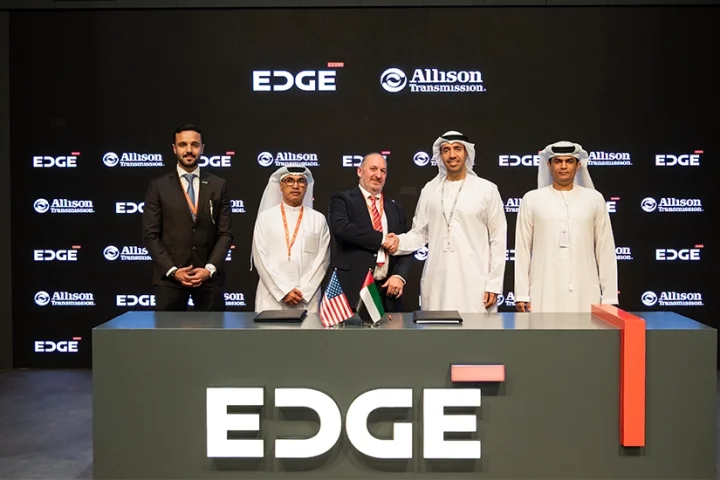2018 has been a year of transformation all round. We have seen the world’s economy shift. We have seen uncertainty in the markets brought about by various tariff wars. Nevertheless, as our Growth Index has shown, we have seen businesses continue to find ways to grow.
Given this changing landscape, the task of looking in to the future and pinpointing what lies ahead seems trickier this year than ever before. It certainly feels like 2019 will provide regional businesses—and manufacturers in particular—with some challenges. Crucially however, I also wholeheartedly believe that, if businesses put the right technology to work, these challenges can very quickly become opportunities.
To that end, here are five potential challenges or opportunities—depending on whether you have a mind-set for growth.
Finding the opportunity in macro-economic changes
The last 12 months have been shaped by a series of dramatic macro-economic events that have strummed up uncertainty and shaped economies around the world.
Uncertainty is challenging. However, those local businesses that are agile, pioneering, and able to adapt quickly to change, can reap rewards. In fact, challenging environments often present unparalleled opportunity for those ready to step up. UAE manufacturers using modern technologies and software can keep themselves agile enough to respond quickly and adapt to market changes. Software such as enterprise resource planning (ERP) solutions are enabling manufacturers to adapt their entire supply chains to peaks and troughs in demand to allow for changes in the market.
Don’t get stuck on the big data bandwagon
Many businesses are guilty of thinking technology can fix all of their problems. Over the last few years, we have therefore seen tech investment go through the roof, and according to research in the Epicor Global Growth Index, technology remains a high priority for 74% of high growth companies.
With new technology comes new data. Many business leaders have therefore been left up to their knees in a quagmire of big data, with 77% in the manufacturing sector agreeing that they are having to deal with more and more information every day.
In 2019 however, all of this investment will come to a head. Business leaders stuck on the big data bandwagon will spend next year asking, “How can I realise the value of my tech investments?” and “How can I get the most out of all of this information?”
For those UAE manufacturers that can put their data to good use, 2019 will be a good year. We can expect to see smart manufacturers use data from their ERP systems to generate real insights. Many will be seen using predictive analytics to pre-empt shortages or high demand in the supply chain, for example, and those who do this well will quickly become preferred and reliable suppliers to their customers.
Embrace cloud—it is shifting the competitive landscape
According to IDG, 73% of enterprises have at least one application, or a portion of their computing infrastructure, already in the cloud. However, despite its prevalence elsewhere, manufacturing has been slower to adopt cloud than other industries. According to some reports, digital services such as cloud computing now provide at least 25% of the total inputs that go into finished manufactured products. However, this barely touches the surface of what is really possible.
For local UAE manufacturers, cloud technology makes industry-specific software much more accessible for small players by lowering the total cost of ownership for users—something that will redraw the competitive landscape in 2019.
Embrace the ‘Amazon Effect’ to unleash growth
When we shop on Amazon, the consumer journey is all very easy. This user experience is now something that customers are beginning to expect—not just in the B2C sector, but in the business world too.
In fact, according to recent research, more than eight-in-10 business buyers want the same experience as when they’re buying products for themselves. Ultimately therefore, the manufacturers who will succeed next year will be those that can create highly customised products that are delivered faster than any competitor.
This is the challenge presented by the Amazon Effect, and it’s a tough one. Epicor research shows the majority of manufacturers (65%) expect to tackle stresses and challenges next year, but 2019 will see some manufacturers respond to this challenge with online user journeys, personalized product offerings, and customer engagement pre-purchase through to delivery and beyond.
Bridge the skills gap with robotics
A people and skills shortage continued to plague the manufacturing industry in 2018, and this is only set to continue into 2019. According to a recent study by Korn Ferry, by 2020, the skills shortage in the UAE will translate to $14.46 billion of unrealised output and this figure will soar to $50.55 billion by 2030.
Implementing new technology and ways of working can help businesses maintain and improve production levels despite their resourcing pressures. Because robots can automate repetitive tasks, they are an effective way of relieving a strained workforce from manual or difficult labour.
However, the pressure is still on businesses to encourage new recruits into industry. Here too, the businesses that can use automation effectively will be at an advantage, with Epicor research showing that 41% of young people want the opportunity to work with the latest technology. Robotics and artificial intelligence (AI) are a big draw for young talent, and with software solutions like ERP enabling their investments, businesses can truly take advantage of these innovations.
Embracing opportunities in 2019
There’s no doubting the challenges that local UAE businesses have been, and will continue to be, up against as we head in to 2019. But put technology in the right places and it’s possible to turn these challenges into opportunities.


















